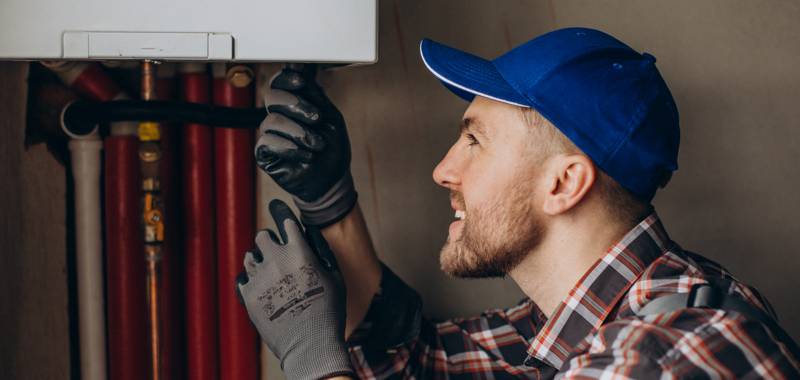Sputtering Boiler or HVAC? Frustrating, isn’t it? The pressing issue now is determining when to opt for a unit replacement instead of continuously shelling out for costly repairs. To assist you, Somerville’s Credit union prepared an informative infographic that dissects all things to consider.
Assessing Your HVAC System’s Health
When was your HVAC system installed? Typically, a residential Boiler or HVAC system has a lifespan of 10 to 20 years. If it’s been chugging along for more than two decades or still relies on R-22 refrigerant (also known as Freon), it’s high time to consider a replacement.
5 Signs you need to replace your boiler
- Uncomfortable or uneven temperatures (This could be a sign your boiler or furnace controls aren’t functioning properly).
- Unusual sounds (a well-functioning heating system shouldn’t generate much noise at all. If yours frequently makes its presence known, it’s a sign something may be wrong).
- A yellow flame (telling us there is incomplete combustion somewhere).
- If you can see visible corrosion around pipes leading to and from your boiler, then it’s likely there is also corrosion in the parts of the unit you can’t see.
- Over 15 years old (is your boiler or furnace more than 15 years old? That’s the approximate life span of even a well-maintained system).
Evaluating Your System’s State
Is your outdoor condensing coil just a bit grimy, and the system operates smoothly with solid ductwork? If so, this is a prime time for scheduled HVAC maintenance. However, if your ducts are held together more by duct tape than sturdy metal, and your compressor called it quits last summer, a full replacement might be the wiser choice.
Weighing Repair Costs
Have you recently received a repair estimate? If the repair cost is less than 25% of a new system’s price, repairing it makes sense. Otherwise, investing in a new unit is a more cost-effective decision. As homeowners ourselves, at Somerville’s Credit Union we talk about this with members all the time; we understand that cost should never compromise your comfort. We offer competitive pricing, financing through Mass Save, and assistance in navigating rebates from local utilities.
Assessing Efficiency
What’s your HVAC system’s SEER (Seasonal Energy Efficiency Rating)? You can find this on the manufacturer’s nameplate on your outdoor unit. If it’s under 14 SEER, upgrading is recommended. Modern systems boast SEER ratings of 26 and higher. A 26 SEER system can cool as effectively as a 13 SEER system but with half the energy usage. That means substantial energy savings, which can offset the cost of a new system in no time.
Frequency of Repairs
If your system is relatively new and trouble-free, consider setting up a maintenance plan. But if you’ve been on a first-name basis with HVAC or boiler repair specialists (more than two visits in a few years), it might be more economical to replace your system. With energy savings, the cost of a new system can rival a handful of those emergency repair calls.
Comfort and Adaptation
Is your home uncomfortably warm in summer and chilly in winter despite insulation and other measures? If you’ve upgraded windows, insulation, or added new technologies not present when your home was constructed, it could affect your heating and cooling demands. Any changes to your home may warrant fresh heating or HVAC system.







